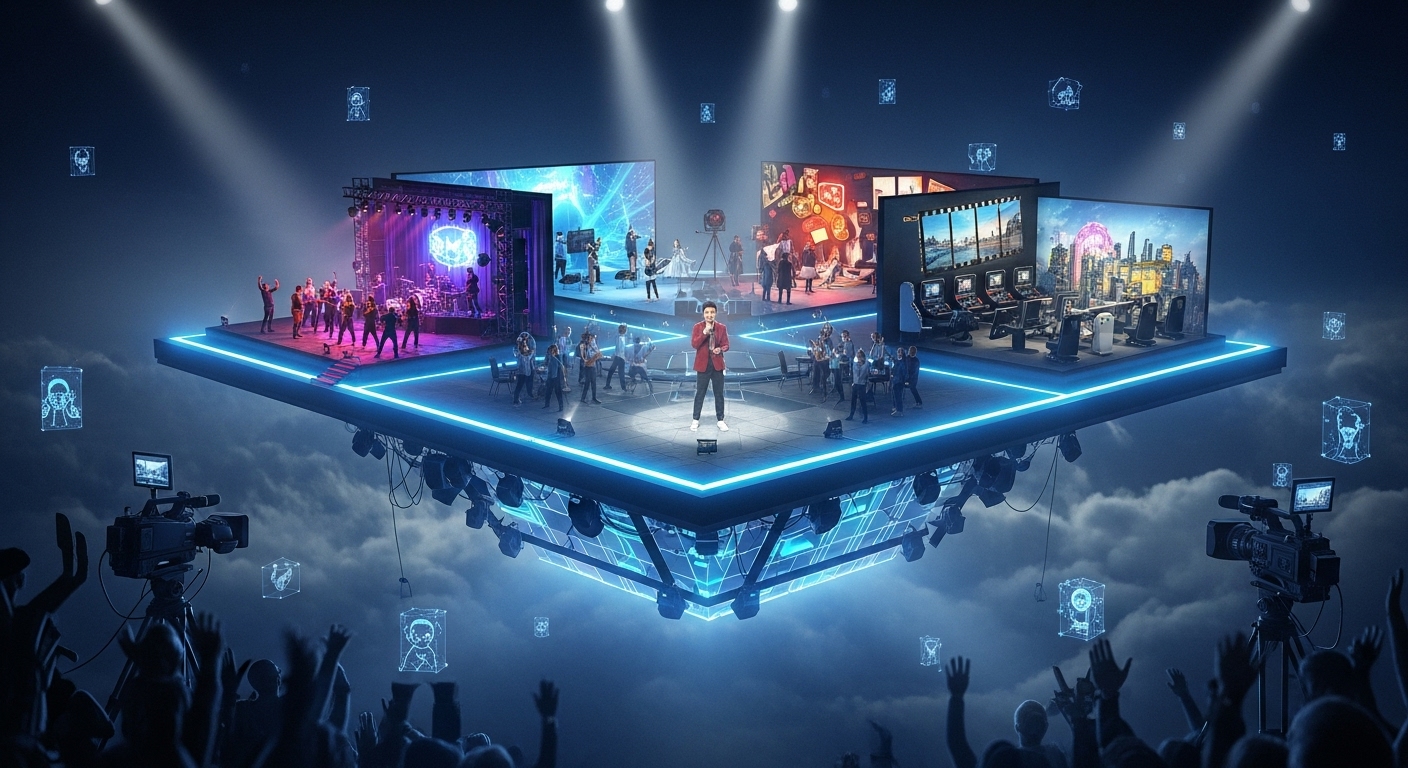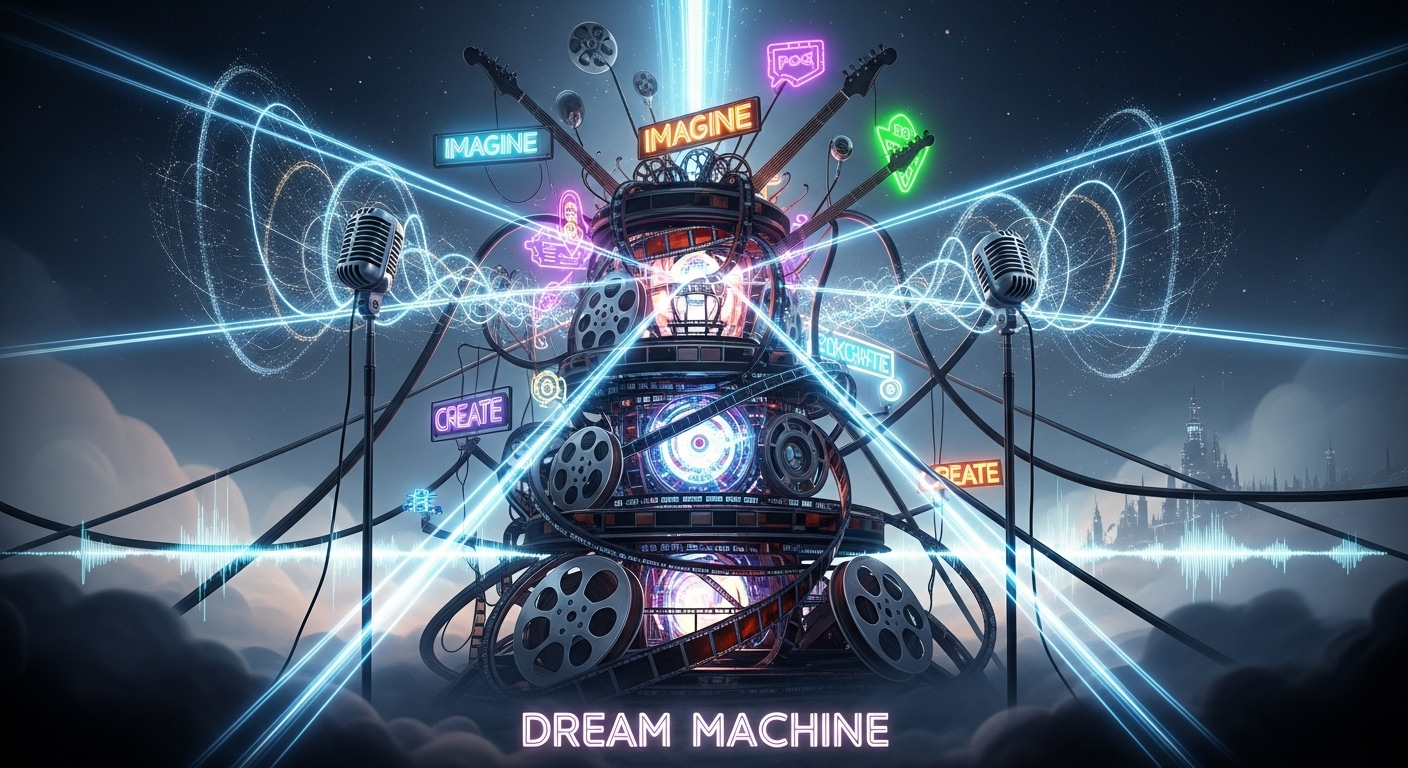Entertainment is a universal language that transcends borders, cultures, and generations. It has the incredible ability to captivate, inspire, and even transform the way we see the world. Whether it is through movies, television, music, video games, or live performances, entertainment plays a crucial role in shaping our daily lives. In this blog, we will explore the diverse dimensions of entertainment, examine its evolution over time, and understand why it continues to hold such a vital place in human society.
The Magic of Movies
Movies are perhaps the most universally recognized form of entertainment. They transport us to distant worlds, allow us to experience emotions we might never encounter in real life, and connect people across generations. From the early silent films of the 1900s to the high-budget blockbusters of today, cinema has continually evolved to reflect societal changes and technological advancements.
The Golden Age of Hollywood
The Golden Age of Hollywood, spanning the 1920s to the 1960s, marked a period of tremendous creativity and glamour. Iconic stars like Marilyn Monroe, James Dean, Audrey Hepburn, and Cary Grant became household names, and their films have left an indelible mark on popular culture. Studios such as MGM, Warner Bros., and Paramount dominated the industry, producing classics that continue to be celebrated today.
During this era, storytelling was highly stylized, and cinematic techniques were rapidly evolving. Directors experimented with lighting, camera angles, and narrative structure, laying the foundation for modern filmmaking. Audiences were mesmerized by musicals, romantic comedies, and epic dramas that provided both escapism and a reflection of contemporary society.
Modern Blockbusters and Technological Advancements
Today, the movie industry has embraced technology in unprecedented ways. Computer-generated imagery (CGI) allows filmmakers to create stunning visual effects, bringing fantastical worlds and characters to life. Franchises like Marvel, Star Wars, and The Lord of the Rings dominate the box office, appealing to a global audience.
Streaming services have also revolutionized how we consume movies. Platforms now release films directly to viewers, bypassing traditional theaters. This shift has made entertainment more accessible than ever, allowing people to watch films from the comfort of their homes. Yet, despite technological advancements, the essence of cinema remains the same—telling compelling stories that resonate with the audience.
Television: From Sitcoms to Streaming Giants
Television has long been a cornerstone of entertainment. From its early days, TV has served as a source of both amusement and cultural commentary. Over the decades, it has transformed from a simple medium for broadcasting news and variety shows to a sophisticated platform offering serialized dramas, reality shows, and interactive content.
The Rise of Classic TV
The 1950s and 1960s witnessed the rise of classic television shows. Series like “I Love Lucy,” “The Twilight Zone,” and “The Andy Griffith Show” captured audiences with humor, suspense, and relatable storytelling. These programs not only entertained but also influenced societal norms and values, highlighting issues such as family dynamics, morality, and social change.
The Streaming Revolution
In recent years, television has undergone a massive transformation due to streaming services. Companies like Netflix, Amazon Prime, and Disney+ have redefined what it means to “watch TV.” Audiences now have on-demand access to an extensive library of content, ranging from critically acclaimed dramas to lighthearted comedies.
Streaming has also fostered a new era of binge-watching, where viewers consume entire seasons in one sitting. This trend has changed storytelling techniques, encouraging complex narratives, character development, and interconnected plotlines. Shows like “Stranger Things,” “The Crown,” and “Breaking Bad” have demonstrated the potential of television as a medium for artistic expression and cultural influence.
Music: The Universal Beat
Music is one of the most primal forms of entertainment. It transcends language and culture, evokes emotions, and serves as a reflection of society. From classical compositions to contemporary pop, music has evolved alongside humanity, adapting to new technologies, tastes, and trends.
The Evolution of Music Genres
Over the decades, music has diversified into countless genres, each with its own cultural significance. Jazz, originating in the early 20th century, revolutionized musical expression with its improvisation and rhythm. Rock and roll in the 1950s challenged societal norms and became a voice for youth rebellion. Hip-hop, emerging in the 1970s, provided a platform for storytelling, social commentary, and artistic innovation.
Pop music, often characterized by catchy melodies and broad appeal, continues to dominate global charts. Artists like Michael Jackson, Madonna, Beyoncé, and Taylor Swift have shaped pop culture through their music, performances, and personal brands.
Music in the Digital Age
The advent of digital technology has transformed the music industry. Streaming platforms allow artists to reach audiences worldwide without relying on traditional record labels. Social media has become a powerful tool for promotion, enabling fans to interact directly with their favorite musicians.
Moreover, technology has expanded the possibilities for music creation. Digital audio workstations (DAWs), synthesizers, and AI-driven composition tools have empowered both professional musicians and aspiring artists to experiment with sound in innovative ways. Music has become more accessible, diverse, and experimental than ever before, reflecting the dynamic and interconnected world we live in.
The Thrill of Gaming
Video games have emerged as one of the most immersive and interactive forms of entertainment. From simple pixelated adventures to expansive open-world experiences, gaming offers a unique way to engage with stories, challenges, and communities.
Early Gaming and the Arcade Era
The origins of video gaming date back to the 1970s and 1980s with the advent of arcade machines and early consoles. Classic games like “Pac-Man,” “Space Invaders,” and “Super Mario Bros.” became cultural phenomena, captivating players with their simplicity and charm. Arcades served as social hubs where people could gather, compete, and share experiences.
Modern Gaming and Online Communities
Today, gaming has evolved into a sophisticated industry that rivals movies and television in revenue and cultural impact. Advanced graphics, realistic physics, and complex narratives allow players to immerse themselves in virtual worlds like never before. Games like “The Legend of Zelda,” “Red Dead Redemption,” and “The Witcher” have become legendary for their storytelling and artistry.
Online multiplayer games have also fostered global communities. Platforms such as Fortnite, Call of Duty, and Minecraft connect players from around the world, enabling collaboration, competition, and creativity. Esports, once a niche hobby, has grown into a professional industry with tournaments, sponsorships, and massive audiences. Gaming is no longer just entertainment—it is a social and cultural phenomenon.
Live Performances: The Power of the Stage
While digital entertainment dominates modern culture, live performances continue to captivate audiences with their immediacy and authenticity. Theater, concerts, and festivals offer experiences that cannot be replicated through screens, creating a unique connection between performers and spectators.
Theater and the Art of Storytelling
Theater has been a cornerstone of human culture for centuries. From the tragedies and comedies of ancient Greece to modern Broadway productions, theater provides a space for storytelling, reflection, and emotional engagement. Plays such as “Hamlet,” “Les Misérables,” and “The Phantom of the Opera” have left lasting legacies, demonstrating the enduring power of live performance.
Theater also serves as a mirror of society, addressing themes such as politics, identity, love, and justice. Its live nature creates a shared experience that fosters empathy and understanding among audiences.
Music Festivals and Concerts
Live music performances offer an energy and intimacy that recordings cannot capture. Concerts and music festivals bring people together, creating a sense of community and shared passion. Events like Coachella, Glastonbury, and Lollapalooza attract thousands of attendees, blending music, art, and culture in unforgettable experiences.
These events also provide opportunities for emerging artists to gain exposure and connect with fans. The spontaneity and unpredictability of live performances make each show a unique experience, reinforcing the emotional impact of music.
Celebrity Culture: The Fascination with Fame
Entertainment is closely tied to celebrity culture. Celebrities, whether actors, musicians, or influencers, shape public perception, influence trends, and inspire millions of fans worldwide. Society’s fascination with fame reflects a desire to connect with extraordinary talent and lifestyles.
The Evolution of Celebrity
Historically, celebrities were confined to film, television, or music. Their influence was primarily through media coverage and public appearances. Today, social media has transformed the concept of fame, allowing individuals to cultivate personal brands, engage directly with fans, and achieve global recognition in ways previously unimaginable.
Influencers, YouTubers, and TikTok stars exemplify the democratization of fame. Talent and creativity can now propel someone to stardom without traditional gatekeepers, reshaping the entertainment landscape and expanding opportunities for aspiring artists.
The Impact of Celebrity on Society
Celebrities influence fashion, beauty, lifestyle, and even political opinions. Fans often emulate their idols, creating trends that permeate everyday life. While celebrity culture can inspire, it also raises questions about privacy, mental health, and societal expectations. Navigating fame responsibly has become a crucial aspect of modern entertainment, reflecting the complex relationship between public figures and audiences.
The Future of Entertainment
As technology continues to advance, the future of entertainment promises to be even more immersive and innovative. Virtual reality, augmented reality, and artificial intelligence are poised to redefine storytelling, interactivity, and audience engagement.
Imagine attending a live concert virtually, exploring a digital replica of a historic city, or interacting with AI-driven characters in games and films. The boundaries between reality and imagination will continue to blur, offering new possibilities for creativity and human connection.
Moreover, the global nature of entertainment ensures that diverse voices and perspectives will reach wider audiences. International films, music, and games will foster cross-cultural understanding, enriching the entertainment landscape and celebrating the richness of human experience.
Conclusion
Entertainment is more than just a way to pass the time—it is a reflection of our values, emotions, and imagination. From the magic of movies to the thrill of gaming, from the universality of music to the power of live performances, entertainment continues to shape culture, inspire creativity, and connect people across the globe.
As we look to the future, one thing remains certain: our desire for stories, experiences, and moments of joy will never wane. Entertainment, in all its forms, will continue to evolve, adapt, and captivate, reminding us of the limitless potential of human creativity and imagination.



